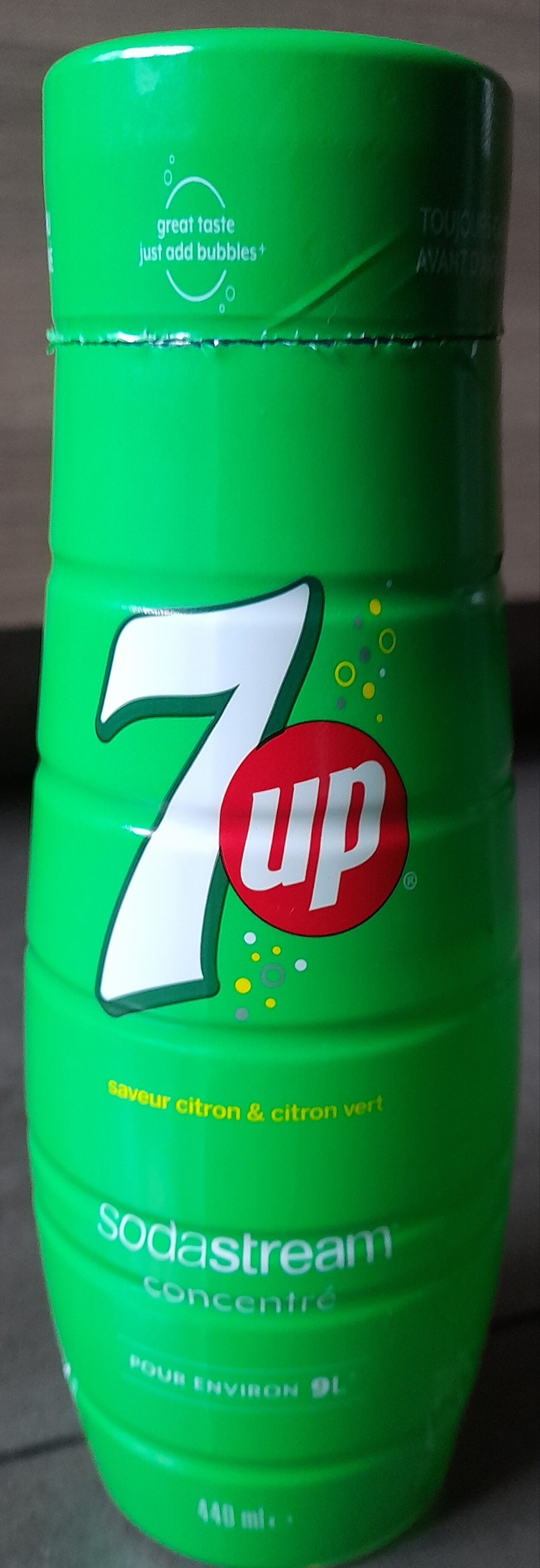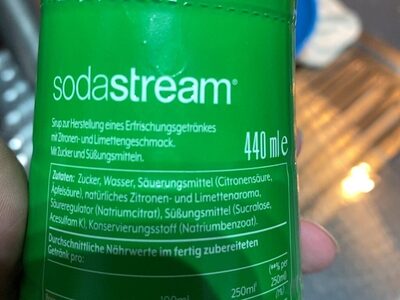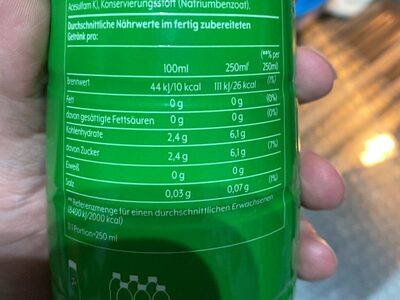Sirop 7up - Sodastream - 440ml
This product page is not complete. You can help to complete it by editing it and adding more data from the photos we have, or by taking more photos using the app for Android or iPhone/iPad. Thank you!
×
Barcode: 8719128117256 (EAN / EAN-13)
Quantity: 440ml
Brands: Sodastream
Categories: Beverages, Frozen foods, Carbonated drinks, Syrups, Artificially sweetened beverages, Sodas, Flavoured syrups, Sweetened beverages, Cordial, Cordials, fr:Boissons concentrées, fr:Préparations pour boissons
Stores: Woolworths, Coles, Officeworks, Kmart, Big-W
Matching with your preferences
Environment
Packaging
Transportation
Report a problem
Data sources
Product added on by kiliweb
Last edit of product page on by bartolomeu.
Product page also edited by archanox, ecoscore-impact-estimator, oettimaggl, openfoodfacts-contributors, packbot, prepperapp, quechoisir, rgerland, roboto-app, smoothie-app, tacite, teolemon, yuka.SHI4WkhJOERnY3NSZ3NBQzl4TDh4L0o4eTVLS0JVU3RCYk1XSWc9PQ.









